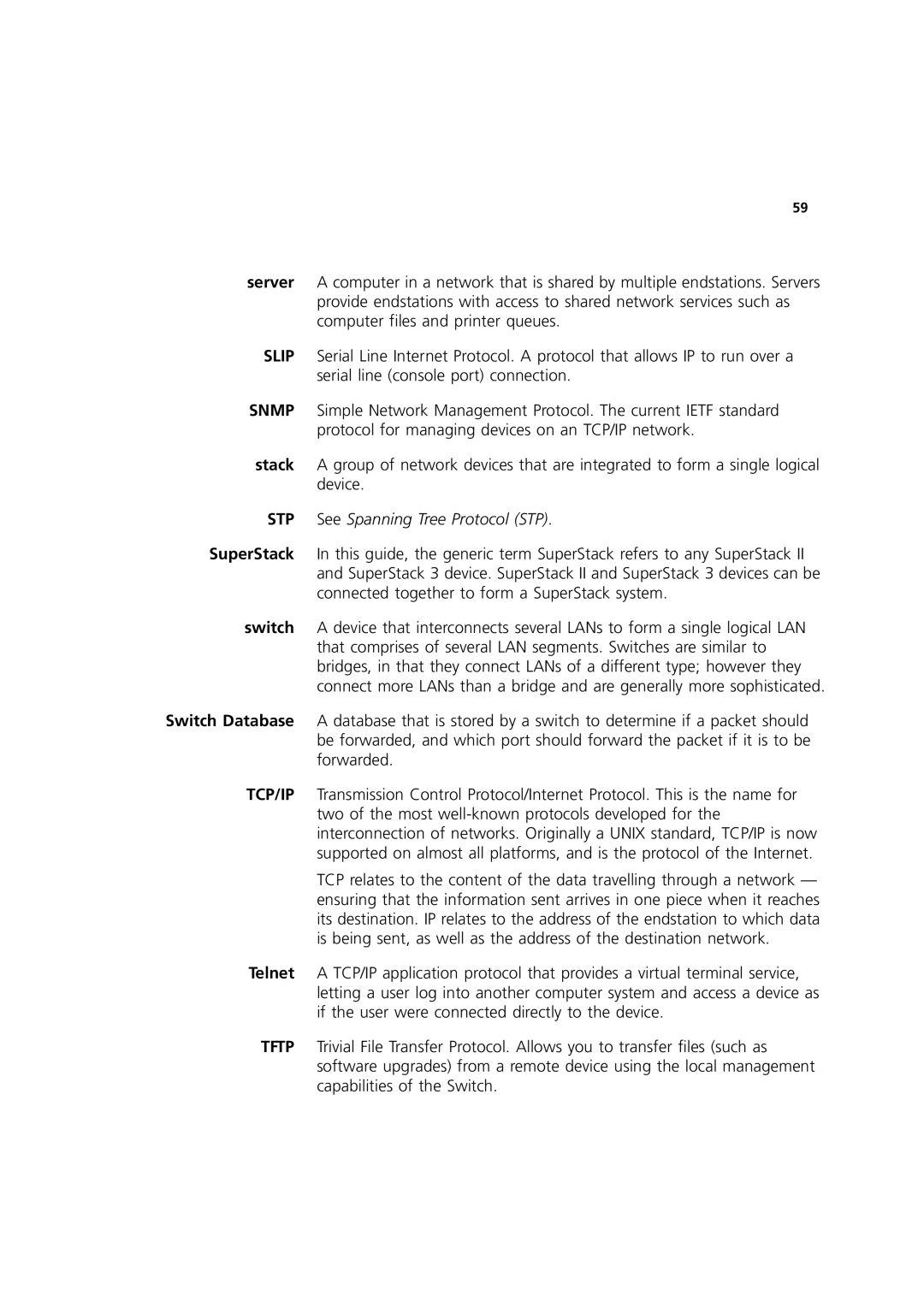59
server A computer in a network that is shared by multiple endstations. Servers provide endstations with access to shared network services such as computer files and printer queues.
SLIP Serial Line Internet Protocol. A protocol that allows IP to run over a serial line (console port) connection.
SNMP Simple Network Management Protocol. The current IETF standard protocol for managing devices on an TCP/IP network.
stack A group of network devices that are integrated to form a single logical device.
STP See Spanning Tree Protocol (STP).
SuperStack In this guide, the generic term SuperStack refers to any SuperStack II and SuperStack 3 device. SuperStack II and SuperStack 3 devices can be connected together to form a SuperStack system.
switch A device that interconnects several LANs to form a single logical LAN that comprises of several LAN segments. Switches are similar to bridges, in that they connect LANs of a different type; however they connect more LANs than a bridge and are generally more sophisticated.
Switch Database A database that is stored by a switch to determine if a packet should be forwarded, and which port should forward the packet if it is to be forwarded.
TCP/IP Transmission Control Protocol/Internet Protocol. This is the name for two of the most
TCP relates to the content of the data travelling through a network — ensuring that the information sent arrives in one piece when it reaches its destination. IP relates to the address of the endstation to which data is being sent, as well as the address of the destination network.
Telnet A TCP/IP application protocol that provides a virtual terminal service, letting a user log into another computer system and access a device as if the user were connected directly to the device.
TFTP Trivial File Transfer Protocol. Allows you to transfer files (such as software upgrades) from a remote device using the local management capabilities of the Switch.
